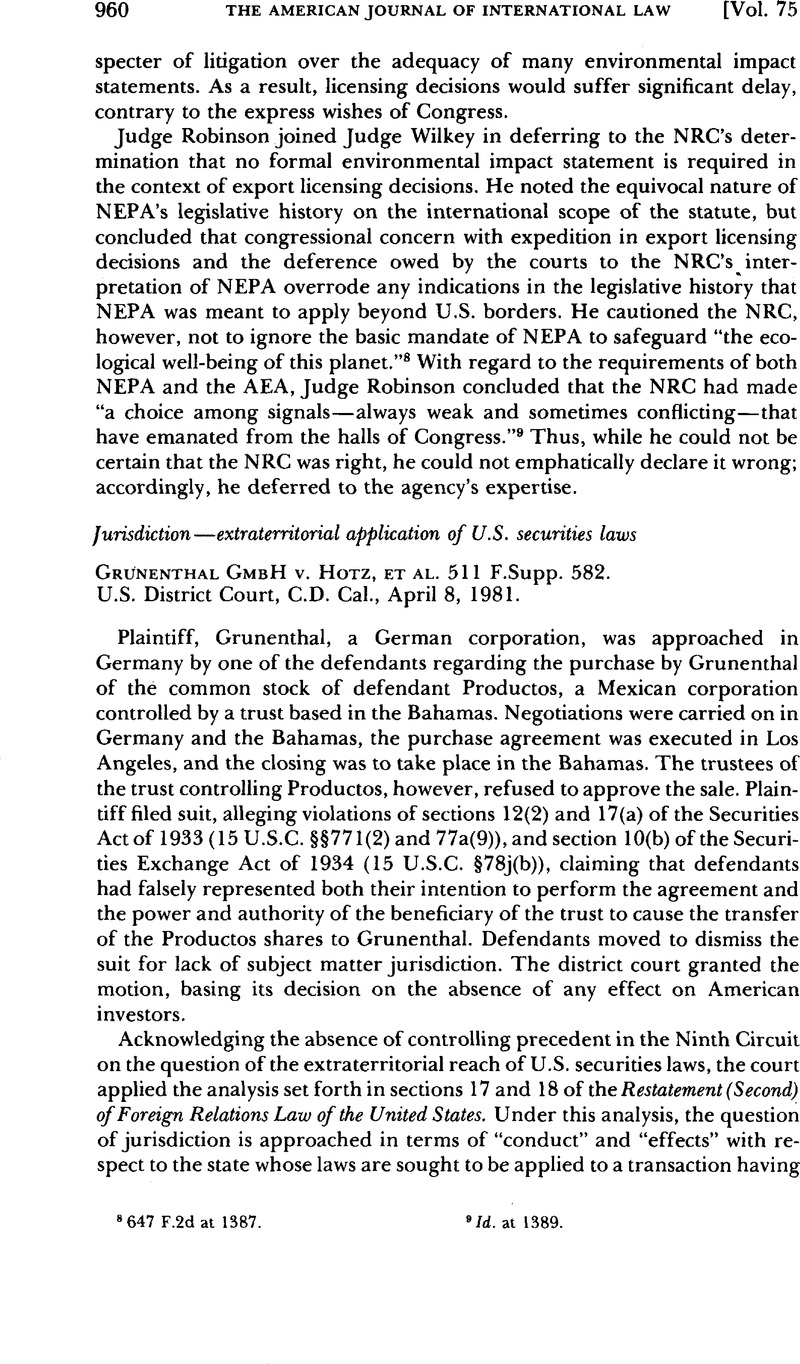No CrossRef data available.
Published online by Cambridge University Press: 27 February 2017

1 Restatement §17 provides:
A state has jurisdiction to prescribe a rule of law
(a) attaching legal consequences to conduct that occurs within its territory, whether or not such consequences are determined by the effects of the conduct outside the territory, and
(b) relating to a thing located, or a status or other interest localized, in its territory.
Restatement §18 provides:
A state has jurisdiction to prescribe a rule of law attaching legal consequences to conduct that occurs outside its territory and causes an effect within its territory, if either
(a) the conduct and its effect are generally recognized as constituent elements of a crime or tort under the law of states that have reasonably developed legal systems, or
(b) (i) the conduct and its effect are constituent elements of activity to which the rule applies; (ii) the effect within the territory is substantial; (iii) it occurs as a direct and foreseeable result of the conduct outside the territory; and (iv) the rule is not inconsistent with the principles of justice generally recognized by states that have reasonably developed legal systems.
A different approach, subjecting exercises of jurisdiction to a principle of “reasonableness,” is taken in Restatement of the Foreign Relations Law of the United States (Revised), Tent. Draft No. 2, §§403, 416 (1981), published after Grunenthal was decided, but it would probably lead to the same result in this case.
2 519 F.2d 974 (2d Cir.), cert, denied, 423 U.S. 1018 (1975).
3 405 F.2d 200 (2d Cir.), rev’d on other grounds, 405 F.2d 215 (2d Cir. 1968), cert, denied, 395 U.S. 906(1969).
4 405 F.2d at 206.
5 Id. at 208.